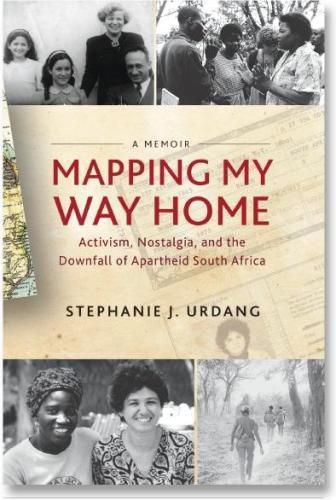Readings Newsletter
Become a Readings Member to make your shopping experience even easier.
Sign in or sign up for free!
You’re not far away from qualifying for FREE standard shipping within Australia
You’ve qualified for FREE standard shipping within Australia
The cart is loading…






This title is printed to order. This book may have been self-published. If so, we cannot guarantee the quality of the content. In the main most books will have gone through the editing process however some may not. We therefore suggest that you be aware of this before ordering this book. If in doubt check either the author or publisher’s details as we are unable to accept any returns unless they are faulty. Please contact us if you have any questions.
Stephanie J. Urdang’s memoir tracking the slow demise of apartheid that led to South Africa’s first democratic elections.Stephanie Urdang was born in Cape Town, South Africa, into a white, Jewish family staunchly opposed to the apartheid regime. In 1967, at the age of twenty-three, no longer able to tolerate the grotesque iniquities and oppression of apartheid, she chose exile and emigrated to the United States. There she embraced feminism, met anti-apartheid and solidarity movement activists, and encountered a particularly American brand of racial injustice. Urdang also met African revolutionaries such as Amilcar Cabral, who would influence her return to Africa and her subsequent journalism. In 1974, she trekked through the liberation zones of Guinea-Bissau during its war of independence; in the 1980’s, she returned repeatedly to Mozambique and saw how South Africa was fomenting a civil war aimed to destroy the newly independent country.Urdang’s memoir maps out her quest for the meaning of home and for the lived reality of revolution with empathy, courage, and a keen eye for historical and geographic detail. This is a personal narrative, beautifully told, of a journey traveled by an indefatigable exile who, while yearning for home, continues to question where, as a citizen of both South Africa and the United States, she belongs. My South Africa! she writes, on her return in 1991, after the release of Nelson Mandela, How could I have imagined for one instant that I could return to its beauty, and not its pain?
$9.00 standard shipping within Australia
FREE standard shipping within Australia for orders over $100.00
Express & International shipping calculated at checkout
This title is printed to order. This book may have been self-published. If so, we cannot guarantee the quality of the content. In the main most books will have gone through the editing process however some may not. We therefore suggest that you be aware of this before ordering this book. If in doubt check either the author or publisher’s details as we are unable to accept any returns unless they are faulty. Please contact us if you have any questions.
Stephanie J. Urdang’s memoir tracking the slow demise of apartheid that led to South Africa’s first democratic elections.Stephanie Urdang was born in Cape Town, South Africa, into a white, Jewish family staunchly opposed to the apartheid regime. In 1967, at the age of twenty-three, no longer able to tolerate the grotesque iniquities and oppression of apartheid, she chose exile and emigrated to the United States. There she embraced feminism, met anti-apartheid and solidarity movement activists, and encountered a particularly American brand of racial injustice. Urdang also met African revolutionaries such as Amilcar Cabral, who would influence her return to Africa and her subsequent journalism. In 1974, she trekked through the liberation zones of Guinea-Bissau during its war of independence; in the 1980’s, she returned repeatedly to Mozambique and saw how South Africa was fomenting a civil war aimed to destroy the newly independent country.Urdang’s memoir maps out her quest for the meaning of home and for the lived reality of revolution with empathy, courage, and a keen eye for historical and geographic detail. This is a personal narrative, beautifully told, of a journey traveled by an indefatigable exile who, while yearning for home, continues to question where, as a citizen of both South Africa and the United States, she belongs. My South Africa! she writes, on her return in 1991, after the release of Nelson Mandela, How could I have imagined for one instant that I could return to its beauty, and not its pain?